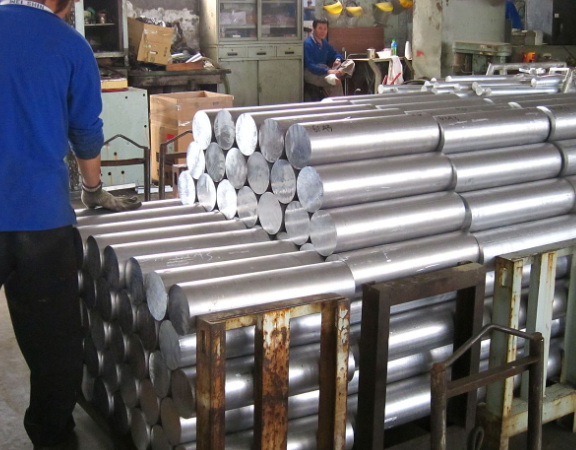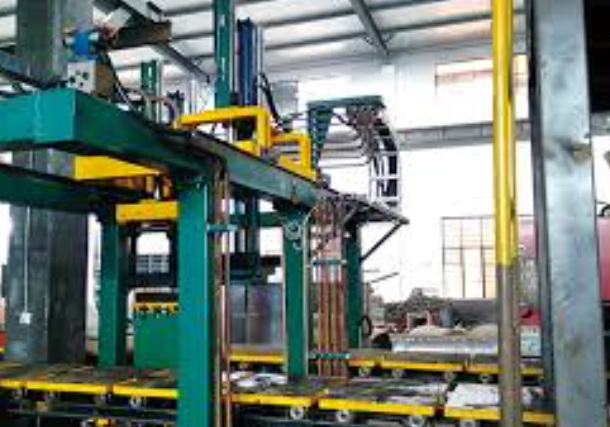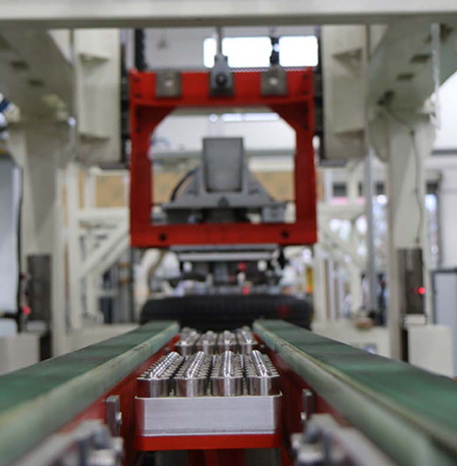Content Menu
● Introduction to Extrusion Machinery
>> Extrusion Process Overview
● Benefits of Working with Exporters of Extrusion Machinery
>> 1. Enhanced Quality and Reliability
>> 2. Customization and Flexibility
>> 3. Cost Efficiency and Market Expansion
>> 4. Innovation and Technological Advancements
>> 5. Comprehensive Support Services
● Market Trends and Growth
>> Sustainability and Environmental Considerations
>> Customization for Specific Industries
>> In-House Extrusion vs. Outsourcing
● Regional Market Analysis
>> Asia-Pacific Market Dynamics
● Conclusion
● FAQ
>> 1. What are the key factors to consider when selecting an exporter of extrusion machinery?
>> 2. How do exporters of extrusion machinery contribute to sustainability?
>> 3. What role do exporters play in the customization of extrusion machinery?
>> 4. How can exporters help businesses expand their market reach?
>> 5. What are the benefits of integrating automation and digital technologies in extrusion processes?
● Citations:
In the rapidly evolving world of manufacturing, extrusion machinery plays a pivotal role in producing a wide range of plastic products, from pipes and profiles to sheets and films. Exporters of extrusion machinery are crucial in providing high-quality equipment that meets the diverse needs of industries worldwide. This article delves into the key benefits of collaborating with these exporters, exploring how they enhance production efficiency, quality, and innovation.

Introduction to Extrusion Machinery
Extrusion machinery is designed to process plastic materials by melting and shaping them into various forms. The process involves feeding raw plastic into an extruder, where it is heated and mixed, then pushed through a die to create the desired shape. This technology is essential in industries such as construction, packaging, and automotive.
Extrusion Process Overview
The extrusion process can be visualized in the following steps:
1. Material Feeding: Raw plastic is fed into the extruder.
2. Melting and Mixing: The plastic is melted and mixed in the heated barrel.
3. Shaping: The molten plastic is pushed through a die to form the final product.
Benefits of Working with Exporters of Extrusion Machinery
1. Enhanced Quality and Reliability
Exporters of extrusion machinery often provide high-quality equipment that ensures consistent product quality. These machines are designed with advanced technology and undergo rigorous testing to ensure reliability and performance. For instance, Chinese manufacturers are known for their ability to produce high-quality extruders at competitive prices, making them a preferred choice globally. High-quality machine parts, such as those provided by professional plastic pipe extrusion line suppliers, are essential for achieving optimal performance in plastic pipe production[1].
2. Customization and Flexibility
Exporters can offer customized solutions tailored to specific industry needs. This flexibility allows businesses to adapt their production processes to meet changing market demands or to produce specialized products. Companies like Coperion and KraussMaffei provide customizable extruder configurations to handle varied materials and processes. Similarly, aluminum extrusion suppliers offer bespoke solutions, such as custom extrusion dies, which enhance product functionality and differentiation[2][5].
3. Cost Efficiency and Market Expansion
Partnering with exporters can lead to cost savings due to economies of scale and access to global markets. Strategic partnerships enable companies to expand their market reach, tapping into new geographical regions and customer segments. Long-term supplier relationships, as seen in the aluminum extrusion sector, provide predictable cost structures and financial stability, allowing businesses to forecast budgets more accurately[2].
4. Innovation and Technological Advancements
Exporters of extrusion machinery often invest in cutting-edge technology, integrating automation and digital solutions into their equipment. This enhances production efficiency, reduces waste, and improves product quality. The integration of Industry 4.0 technologies is transforming traditional extrusion processes into intelligent and sustainable operations. For example, the use of IoT and AI enables remote monitoring and predictive maintenance, improving productivity and reducing downtime[7].
5. Comprehensive Support Services
Reputable exporters provide comprehensive after-sales services, including installation, maintenance, and repair. This support ensures that production lines remain operational, minimizing downtime and enhancing overall efficiency. Companies like JWELL offer extensive technical services and training to ensure smooth plant operations. Similarly, selecting a manufacturer that provides comprehensive support services is crucial for maintaining high-quality production[4].
Market Trends and Growth
The global extrusion machinery market is experiencing significant growth, driven by increasing demand from various industries, including construction, automotive, and packaging. The Asia-Pacific region, particularly China and India, is expected to dominate the market due to rapid industrialization and growing food and beverage consumption[6][7]. The trend towards sustainable practices has led manufacturers to seek advanced extrusion solutions that reduce waste and energy consumption, aligning with global efforts to transition towards a circular economy[3].
Sustainability and Environmental Considerations
Exporters of extrusion machinery are increasingly focusing on sustainability by providing equipment that minimizes waste and energy consumption. Advanced extrusion technologies enable the recycling of plastic materials, reducing landfill waste and conserving resources. This aligns with stringent environmental regulations in regions like Europe, where manufacturers are encouraged to adopt eco-friendly extrusion solutions[3].
Customization for Specific Industries
Different industries have unique requirements for their extrusion processes. For instance, the automotive industry may require precise temperature control and specialized dies, while the food industry demands extruders that comply with strict hygiene standards. Exporters that offer customization can design and build equipment specifically tailored to these needs, enhancing production efficiency, quality, and reliability[4].
In-House Extrusion vs. Outsourcing
While outsourcing extrusion processes can provide access to specialized equipment and expertise, maintaining an in-house extrusion capability offers several benefits. It reduces reliance on external suppliers, allowing for better quality control and faster adaptation to changes in product design or material. Additionally, in-house extrusion can shorten production cycles and protect sensitive designs from exposure to third parties[4].

Regional Market Analysis
The extrusion machinery market is segmented globally, with Europe and North America being significant regions due to their emphasis on sustainability and technological innovation. Germany, in particular, dominates the European market with its strong engineering expertise and focus on automation and Industry 4.0 technologies[3]. In North America, the U.S. is a key player, driven by robust demand from sectors like packaging and construction, as well as a shift towards sustainable practices[3].
Asia-Pacific Market Dynamics
The Asia-Pacific region is experiencing rapid growth due to industrialization and increasing demand for innovative products. Countries like China and India are investing heavily in manufacturing capabilities, making them crucial markets for extrusion machinery exporters. The region's strong food processing sector also drives demand for extrusion machinery used in packaging[6][7].
Conclusion
Working with exporters of extrusion machinery offers numerous benefits, from enhanced product quality and customization options to cost efficiency and technological innovation. These partnerships are crucial for businesses seeking to expand their market presence and stay competitive in the global manufacturing landscape.

FAQ
1. What are the key factors to consider when selecting an exporter of extrusion machinery?
When choosing an exporter of extrusion machinery, consider factors such as reputation, experience, quality of equipment, technological innovation, and comprehensive support services. Ensure the exporter can meet your specific production needs and provide reliable after-sales support.
2. How do exporters of extrusion machinery contribute to sustainability?
Exporters of extrusion machinery contribute to sustainability by providing equipment that minimizes waste and energy consumption. Advanced extrusion technologies enable the recycling of plastic materials, reducing landfill waste and conserving resources. This aligns with global efforts to transition towards a circular economy.
3. What role do exporters play in the customization of extrusion machinery?
Exporters of extrusion machinery play a significant role in customization by offering tailored solutions that meet specific industry requirements. This includes designing equipment for unique materials, output rates, and product specifications, enhancing production efficiency and product quality.
4. How can exporters help businesses expand their market reach?
Exporters of extrusion machinery help businesses expand their market reach by providing access to global networks and expertise. Strategic partnerships enable companies to tap into new geographical regions and customer segments, enhancing market presence and competitiveness.
5. What are the benefits of integrating automation and digital technologies in extrusion processes?
The integration of automation and digital technologies in extrusion processes enhances precision, repeatability, and reliability. It allows for real-time monitoring and predictive maintenance, reducing errors and downtime. This transformation aligns with Industry 4.0 principles, making extrusion processes more efficient and sustainable.
Citations:
[1] https://jydjx.com/benefits-of-working-with-a-professional-plastic-pipe-extrusion-line-supplier/
[2] https://aluminumextrusions.net/long-term-supplier-relationships/
[3] https://www.grandviewresearch.com/industry-analysis/extrusion-machinery-market-report
[4] https://jieyatwinscrew.com/blog/exploring-the-world-of-extrusion-machines-understanding-the-basics-and-benefits/
[5] https://www.sourcingallies.com/blog/aluminium-extrusion-suppliers-manufacturing-success
[6] https://www.databridgemarketresearch.com/reports/global-extrusion-machinery-market
[7] https://www.marketreportanalytics.com/reports/extrusion-machinery-market-15267
[8] https://www.linkedin.com/pulse/how-partnerships-drive-growth-machinery-industry-deepak-v-kadam-untyf
[9] https://abhiplastics.com/the-ultimate-guide-to-boosting-productivity-with-plastic-extrusion-machines/
[10] https://plasticextrusiontech.net/benefits-of-plastic-extrusion/
[11] https://www.globenewswire.com/news-release/2025/02/05/3021359/0/en/Plastic-Extrusion-Machine-Market-to-Grow-at-4-7-CAGR-During-2025-2035-Boosting-Global-Industry-to-USD-12-343-2-Million-by-2035-Future-Market-Insights-Inc.html
[12] https://www.yjing-extrusion.com/how-does-extrusion-production-benefit-manufacturing-industries.html
[13] https://jmaluminium.com/aluminium-extrusion-suppliers-quality-success/
[14] https://www.alliedmarketresearch.com/plastic-extrusion-machine-market
[15] https://bespokesourcing.com/en/what-are-the-benefits-of-importing-and-exporting-products/
[16] https://www.jmjj.com/en/advantages.html
[17] https://www.globenewswire.com/news-release/2024/5/16/2883237/0/en/Global-Plastic-Extrusion-Machines-Market-Expected-to-Reach-11-002-1-Million-by-2032-Allied-Market-Research.html
[18] https://paulmurphyplastics.com/industry-news-blog/what-is-custom-extrusion-and-why-you-should-consider-this-in-purchasing-products/
[19] https://www.winman.com/blog/bid/366854/the-benefits-of-supplier-relationship-management
[20] https://www.hlhproto.com/ExportTooling






















